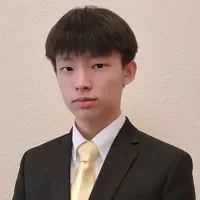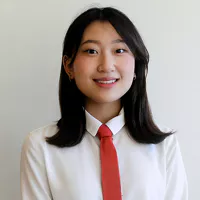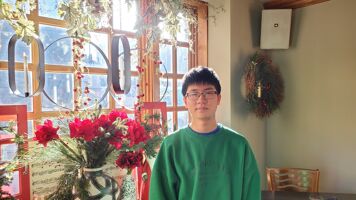
Introduction to Neuroscience Summer Program
The IYNA Introduction to Neuroscience Summer Course is an intensive, month-long neuroscience summer program that undergraduate level neuroscience topics with an emphasis on critical thinking and scientific discovery. Through engaging lectures, interactive problem-solving sessions, and application-focused homework assignments, all of our students will learn both how the brain works and how to think like a scientist. Participants will attend among a cohort of students from more than 40 different countries—gaining a global network of peers.
Summer Program Timeline
Applications Open
February 2025: Summer Program applications will be released!
Due Date
May 10, 2025 at 11:59 PM EST: Summer Program applications are due!Decision Release
Beginning of JuneProgram Dates
Program will be hosted June 23th to July 25, 2025 virtuallyApplication Open
This year's application has opened! Please fill it out by May 10th, 2025, at 11:59 EST.
Apply Now
Summer Program Tracks
Capstone Track
Our Capstone Track is designed for students who wish to dedicate a substantial proportion of their summer to furthering their scientific knowledge. Capstone students participate in lectures, small-group problem-solving sessions, homework assignments, and most importantly submit a research-focused capstone project. Capstone students who complete all requirements earn a Certificate of Completion, showcasing their dedication to and new understanding of neuroscience.
Participant Track
If you would prefer a more relaxed schedule with fewer requirements, we would recommend the Participant Track. Participant Track students are welcome to attend as few or many lectures as they wish, without the requirement to complete any homework assignments. Students who attend at least 70% of lectures receive a Certificate of Attendance.
If you would prefer a more relaxed schedule with fewer requirements, we would recommend the Participant Track. Participant Track students are welcome to attend as few or many lectures as they wish, without the requirement to complete any homework assignments. Students who attend at least 70% of lectures receive a Certificate of Attendance.
Offered Courses
Neuroscience 1
Our Neuroscience I course is designed for students who have minimal exposure to neuroscience. The main topics this course will cover are cell biology of the nervous system, nervous system signaling, and the sensory systems.
Neuroscience 2
Our Neuroscience II course is designed for students who have either completed Neuroscience I or have previously competed in the Brain Bee.
This course introduces students to neurodevelopment, cognition, and neurological disease with a strong emphasis on building scientific literacy
through peer-reviewed journal articles.
Dual Enrollement
If you are interested in taking both courses at the same time and are confident you can invest time into them both, you can opt to take the dual
enrollment approach. This allows you to be a part of both the Neuroscience 1 and 2 programs at the same time this summer!
Youth Neuroscience Summer Program Video
DISCLAIMER: This video was for last year's program, but still helpful in terms of general information.
Testimonials
Quotes from student experiences after being a part of the
Youth Neuroscience Summer Programs!
"My favorite part of the program was the culminating
capstone project. It allowed me to begin to explore
literature and start to understand research. The project
took much effort, but it was extremely rewarding to be
able to present my knowledge of research being done in the
field. Each part of the program was well thought out, and
I’m glad I spent part of my summer learning neuroscience
with Youth Neuroscience 2022."
Andrew Mi
Youth neuroscience '22


"I loved Youth Neuroscience 2022 because of how
challenging but supportive it was. I had no previous
exposure or exploration when I first entered the course,
but the weekly TA sessions were such a huge help in
bonding with fellow students and learning the material on
a deeper level."
Lauren Kim
Youth neuroscience '22


"My favorite part of the Youth Neuroscience program was
how there would always be so many unique lecturers from
around the world that helped to teach neuroscience topics
I had no idea about! The aspect of having new teachers
every single session was amazing to me."
Ryan Cho
Youth neuroscience '23


Frequently Asked Questions
Q1: What is the application process?
A: The application for this program launches at the end of February and the due date is May 10th, 2025, at 11:59PM EST. Notices of acceptance or rejection will be sent out by the beginning of June. Students must confirm participation in the program and submit initial registration materials by June 15th.
Q2: When is the program?
A: June 23rd, 2025 to July 25, 2025.
Q3: When will I be notified of the results?
A: See answer to “Q1: What is the application process?”.
Q4: Is there a limit on how many people will be accepted?
A: There is no limit on the number of people we accept on the Participant Track. We will accept any number of curious applicants that indicate a passion for neuroscience in their application. However, due to faculty limitations, we will only be able to accept a limited number of applicants onto the Capstone Track.
Q5: What if English isn’t my native language?
A: Please note that we currently are unable to translate lectures, and recitations will be conducted in English. You are required to participate in the recitations and lectures which will be most helpful if your English is proficient. Additionally, as a collaborative program, we recommend having proficient English (speaking and writing) to maximize the value of peer-to-peer interactions. All homework and other assignments must be submitted in English. Any use of AI-based translation software is banned, and will result in your removal from the course.
Q6: Where can I find out more?
A: Visit our website at https://www.youthneuro.org/summer-program.html. If you have any additional questions, please refer to Q12.
Q7: If I participated last year, can I participate again?
A: Yes. If you have participated in Neuroscience I the previous summer, we highly recommend you to move forward to Neuroscience II. Neuroscience II will rely heavily on skills gained for the experimental neuroscience lectures of Neuroscience I. However, if you have already completed Neuroscience II, we do not recommend you to repeat the coursework again.
Q8: I am participating in a number of other summer activities. Should I apply?
A: The program's full schedule’s classes and recitations are expected to span 20-25 hours throughout the week. If you are able to balance your other activities with this schedule, we would recommend the Capstone Track. If you would prefer a more relaxed schedule with no attendance/recitation/final project requirements, we would recommend the Participant Track.
Q9: What are the prerequisites for this program?
A: A basic understanding of high school biology is essential for Neuroscience I. We highly recommend completing Neuroscience I before moving onto Neuroscience II.
Q10: Could I enroll in both Neuroscience I and Neuroscience II?
A: Yes. Please note that each program is anticipated to take 20-25 hours a week, meaning dual enrollment could take 40-50 hours a week. We only recommend Dual Enrollment on the Capstone Track for students who wish to dedicate the majority of the week to this program. For the topics covered by Neuroscience I and Neuroscience II, see the Youth Neuroscience Summer Program page.
Q11: Could I utilize large language models such as ChatGPT to assist me on my application?
A: We respectfully ask that applicants refrain from receiving assistance from large language models. We will thoroughly check all received applications for use of artificial intelligence.
Q12: If I have any additional questions about the Summer Course, where should I direct this question?
A: Before contacting our team, please make sure that you have thoroughly read through this FAQ and our Student Handbook. For other questions, please respectfully direct them to our team members at itn25_students@youthneuro.org as well as the youth-neuroscience-questions channel in our Discord Server. We will make sure to address your question as soon as possible. During high volume periods, this could take up to 48-72 hours.
Q13: How do I prove that I have fully read this FAQ?
A: Paste the word “ASTROGLIA” in the beginning of your “Why Summer Program Essay.” Applications that do not contain this word will not be considered for the Capstone Track.